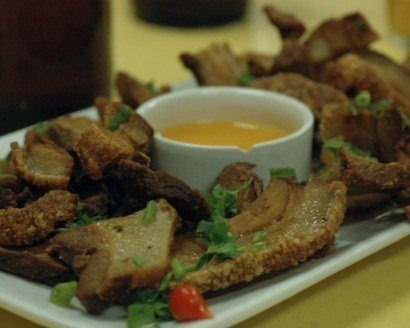A Walk Through Belo Horizonte's 'People's Market' In Brazil
The Central Market in Belo Horizonte, in southeastern Brazil, is affectionately known to residents as the "People's Market." Vendors sell a variety of goods, including clothes, groceries, and coffee, and on weekends residents gather to watch football matches (that's soccer to us Americans) at the restaurants inside.
Nearly 80 years ago, the city's mayor, Cristiano Machado, wanted a market to service the nearly 50,000 residents of Belo Horizonte, so he scouted out a location that would be fitting. On Sept. 7, 1929, the market opened for business on 22 parcels of land that covered more than 150,000 square feet, according to the market's website.
But the market ran into trouble 35 years later, when in 1964, then-mayor George Carone decided to sell the land, stating an inability to manage the property. To prevent the sale of the market, vendors gathered to buy the property as a cooperative. The Banco Mercantil do Brazil, the Bank of Brazil, funded the construction for a permanent covered structure that was built in the late 1960s.
The market is now owned and operated by its vendors and run by an elected administrator that is chosen every four years.
"Everyone comes here, poor and rich," said Daisy Quintão, Belo Horizonte resident and tourist guide. "On weekend mornings everyone comes to eat, drink beer, and talk about soccer."
Casa Cheia is the most popular destination for watching the games. The restaurant serves up typical meat-laden Brazilian fare like liver and jilo (Brazil's equivalent to liver and onions); beef meatballs with almonds, filled with cheese, and topped with a pumpkin sauce; and spicy sausage with peppers and mango chutney.
After lunch, many residents stop at any number of coffee shops in the market to grab a cup to go. The aisles of the market may be packed shoulder to shoulder, but many still take the time to say hello to their favorite vendors before heading off to run their errands.
"This is really the people's market," said Quintão. "We have pride in this market."
This article was originally published on October 12, 2012.
